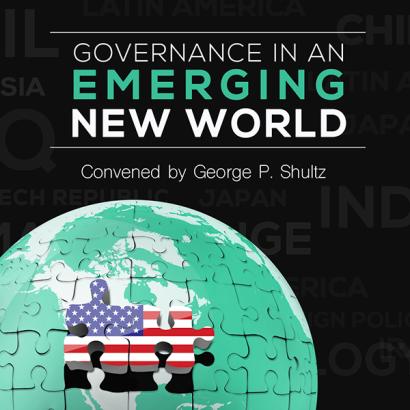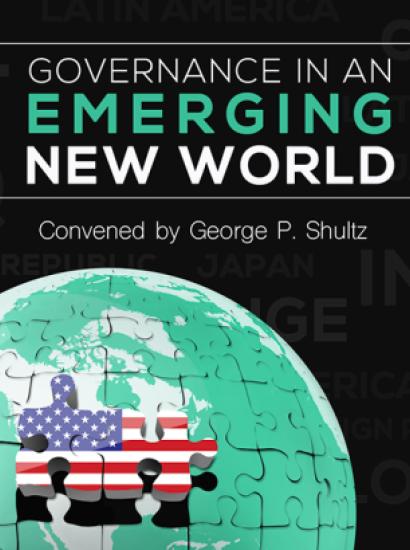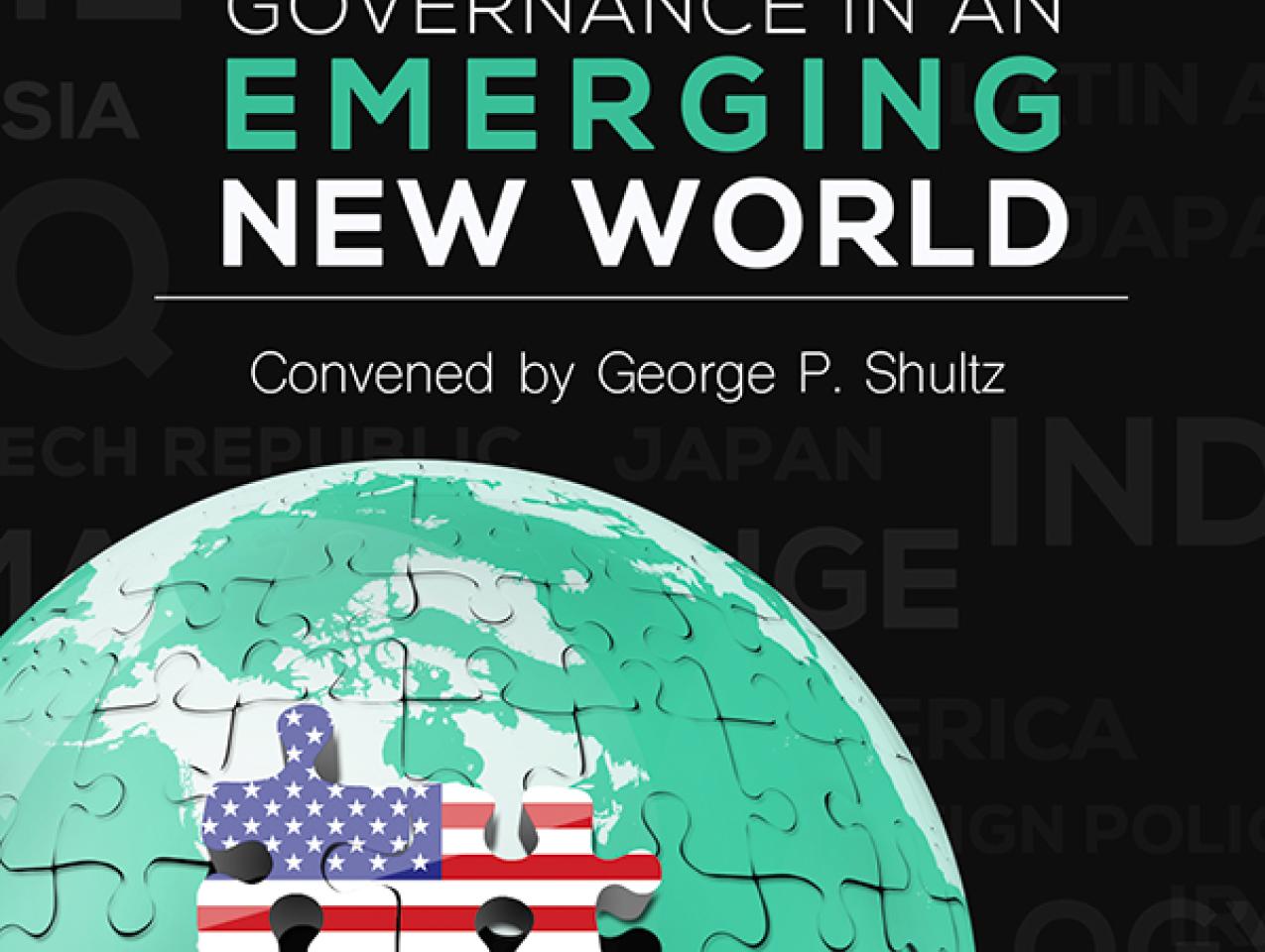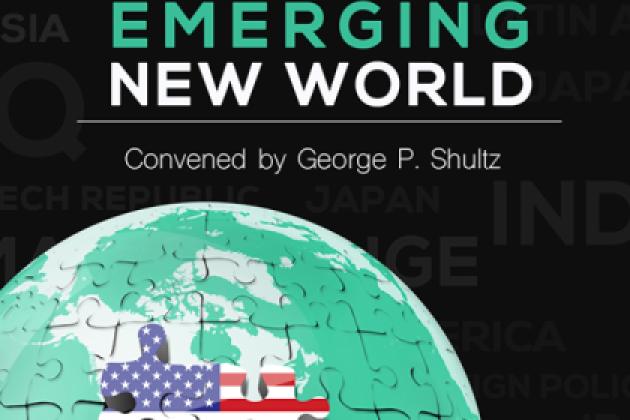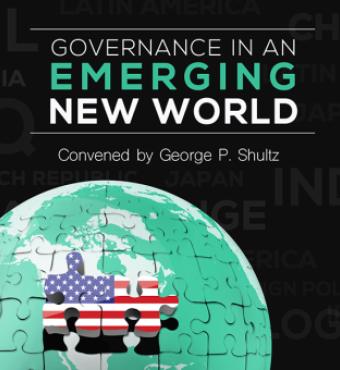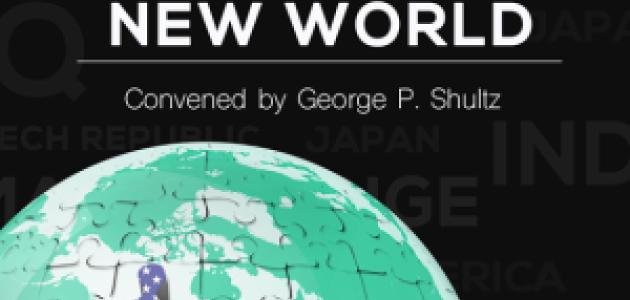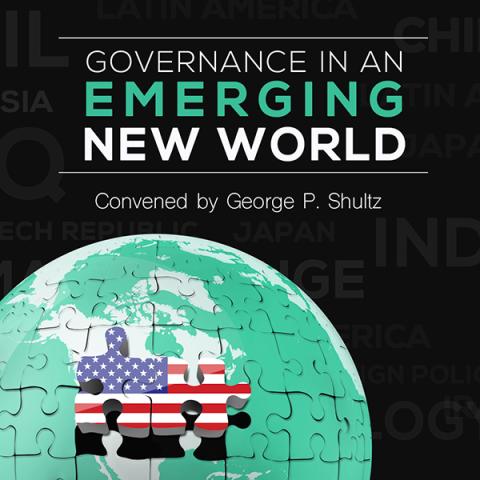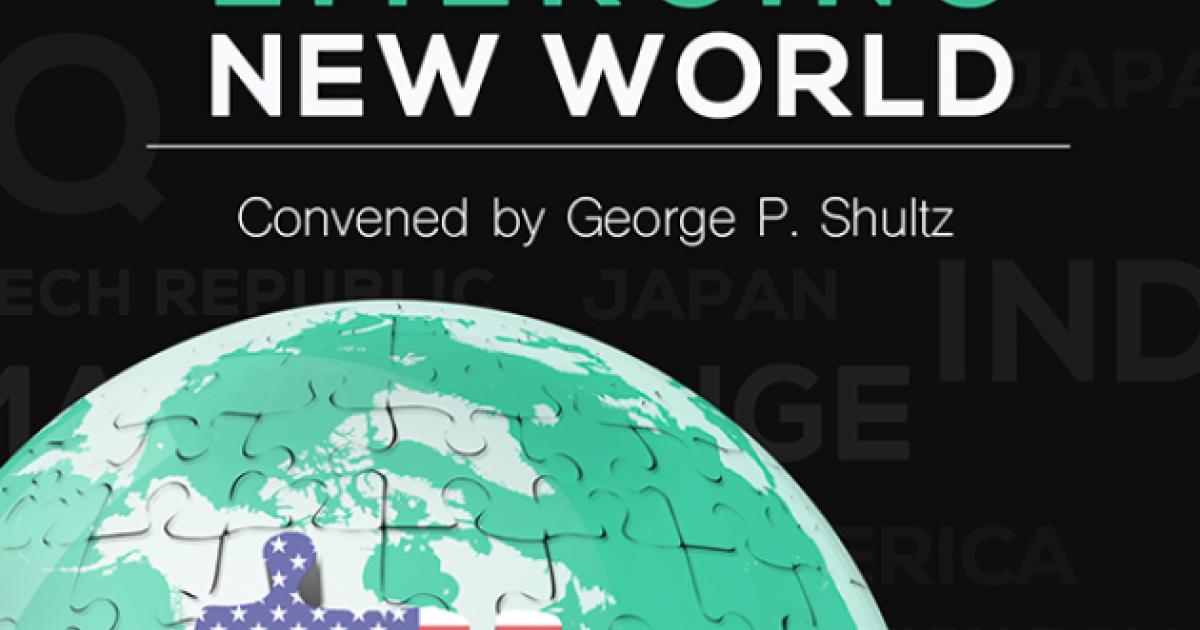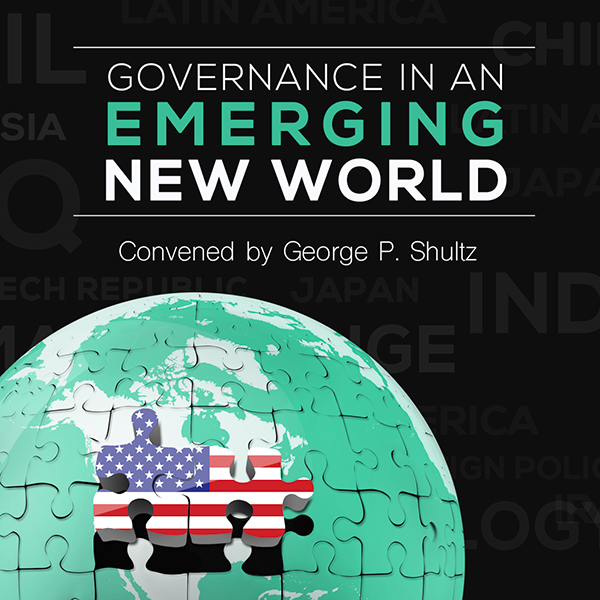
The world ahead will not be like the world behind us.
That is a core belief often expressed by Hoover Institution Senior Fellow George Shultz, and also the driving force behind his new year-long project, Governance in an Emerging New World, which aims to tackle some of humanity’s most difficult issues.
In a video for the project, Shultz said, “The world is changing, and it’s emerging as a new world. And we have to learn how to govern, not only ourselves, but to help others as well; because, if others do well, that’s good for us.”
The project will feature both public events and research papers.
The first panel discussion, Governance in an Emerging New Word: Russia, takes place on October 3 with International Institution for Strategic Studies Deputy Director-General Kori Schake; former US ambassador to Russia and Hoover Senior Fellow Michael McFaul; David Holloway of the Freeman Spogli Institute; Hoover Senior Fellow Stephen Kotkin; and Maria Smekalova of the Russian International Affairs Council, presenting a paper by former foreign minister of Russia Igor Ivanov.
Complexity of change
The initiative aims to understand the impact of long-term but fundamental demographic shifts, the information and communications revolution, advancing technology—such as artificial intelligence and 3D printing—and how these changes affect domestic and international policy strategies.
Some panels will consider the convergence of these changes on major world powers, including Russia, China, Europe, Africa, and Latin America. Others will task contributors to explore how the United States might best respond to these new opportunities and disruptions in its own domestic policy.
Events will continue roughly every three weeks throughout the 2018–19 academic year. Discussions have already been planned for October 9 (China); November 13 (communications and technology); and December 3 (Latin America).
In a letter announcing the project, Shultz co-wrote, “The Project on Governance in an Emerging New World aims to understand these changes and inform strategies that both address the challenges and take advantage of the opportunities afforded by these dramatic transformations. We will explore the implications for our democracy, our economy, and our national security, and for other countries.”
He added that demographic changes and migration are profoundly shaping workforces around the world – some are shrinking while others are expanding. Meanwhile, technology has an irrefutable impact on modern discourse and democracy.
“Thanks to the information and communications revolution, individuals can easily organize to oppose what others propose, greatly complicating the challenge of governance over diversity,” Shultz stated.
“Human terms”
As for artificial intelligence and robotics, they represent a new industrial revolution, changing the workplace and increasing military capabilities of both states and non-state actors.
“And new means of production such as additive manufacturing and automation encourage production of goods near where they will be used. These changes are coming quickly, faster than governments have historically been able to respond. And they are worldwide,” wrote Shultz.
In a June 28 Wall Street Journal article, Shultz wrote about how “Change is the raw material of history.” He noted that the only difference now from yesteryear is the unprecedented speed and acceleration of the changes on so many different fronts.
“The 21st century’s waves of change are being driven by technology, not by the humanities. But, to move beyond these disruptions, we have to think through this change in human terms,” Shultz pointed out.
The project’s coleader is James Timbie, who discussed how artificial intelligence is changing the workplace in this Stanford news release. He wrote a chapter on the topic in a recent Hoover Press book, Beyond Disruption: Technology’s Challenge to Governance, which he co-edited with Shultz and Jim Hoagland.
“The challenge is to facilitate transitions to new occupations with new skills,” Timbie said in that story.
More information, including project papers, can be found here: hoover.org/governanceproject.
MEDIA CONTACTS
Clifton B. Parker, Hoover Institution: 650-498-5204, cbparker@stanford.edu







